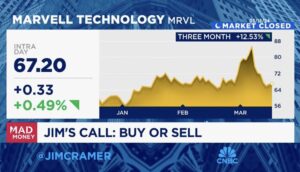
When you make purchases through our links we may earn a small commission.

Photo Credit: Dainis Graveris
The Unforeseen Consequences: How Trump's Immigration Policy Impacted the Agriculture Industry and Your Wallet
The Trump administration’s approach to immigration had a significant impact on the agricultural industry, leading to a shortage of farm labor and, ultimately, an inflation of food prices in grocery stores.
One of the central pillars of Trump’s immigration policy was a crackdown on undocumented immigrants, with a focus on deporting those who were deemed to be in the country illegally. This approach had a direct impact on the agricultural sector, where undocumented immigrants had long been a crucial source of labor.
Undocumented immigrants made up a significant portion of the agricultural workforce in the United States, particularly in the harvesting and processing of crops. According to the Pew Research Center, in 2014, undocumented immigrants accounted for approximately 26% of farmworkers in the United States.
The Trump administration’s approach to immigration made it much more difficult for undocumented immigrants to find work in the United States. This, in turn, made it more difficult for farmers to find the labor they needed to harvest their crops. Many farmers struggled to find enough workers, even with increased wages and benefits, which led to a labor shortage in the agricultural industry.
The shortage of labor in the agricultural industry had a direct impact on food prices in grocery stores. When farmers are unable to find enough labor to harvest their crops, they may be forced to leave crops in the field, resulting in lower yields and less supply. This can lead to higher prices for consumers, as grocery stores have less supply to meet demand.
In addition, the shortage of labor in the agricultural industry can lead to higher labor costs for farmers. When there is a shortage of workers, farmers may need to offer higher wages or better benefits to attract workers. These increased costs can be passed on to consumers in the form of higher food prices.
Furthermore, the Trump administration’s approach to immigration led to a decrease in the number of legal immigrants coming to the United States to work in agriculture. The administration made it more difficult for farmers to bring in temporary workers from other countries, such as through the H-2A visa program. This further exacerbated the labor shortage in the agricultural industry, making it even more difficult for farmers to find the workers they needed.
The shortage of farm labor and resulting inflation of food prices in grocery stores highlights the complex relationship between immigration policy and the U.S. economy. While there are valid concerns about undocumented immigration, policies that restrict or eliminate the ability of farmers to access necessary labor can have significant consequences for consumers and the economy as a whole.
In conclusion, the Trump administration’s approach to immigration had a significant impact on the agricultural industry, leading to a shortage of farm labor and an inflation of food prices in grocery stores. The shortage of labor resulted from a crackdown on undocumented immigrants and a decrease in the number of legal immigrants coming to the United States to work in agriculture. These policies highlight the importance of balancing immigration policy with the needs of the U.S. economy, particularly in industries such as agriculture that rely heavily on immigrant labor.
- #TAGS: Biden, economy, farm labor, FOOD PRICES, Immigration, inflation, labor, Trump

















